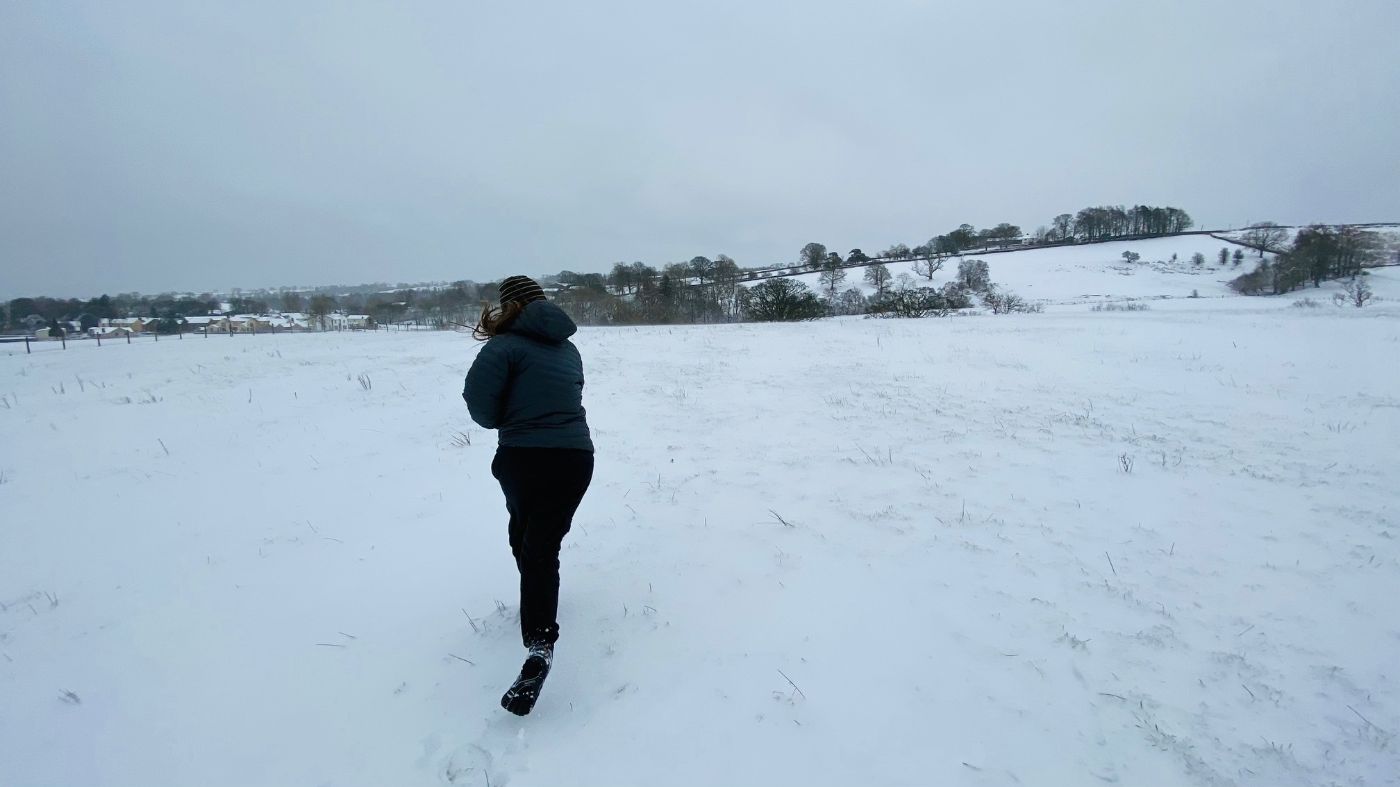
Trying to force parents, children, and teachers to replicate traditional education online in the home is both punishing and pointless
When the schools closed in 2020, friends said to me, “You’re ok, it’s normal for you”. To some extent this was true. My husband and I work online from home and our thirteen-year-old son has always been home-educated. What we were experiencing though was not normal, particularly as our child is medically vulnerable.
Our normal home-learning includes trips to museums, meet-ups with friends, swimming, cinema outings, family travel, and more. It’s enriching for all of us. Now, we keep hearing about the “lost generation” and “long-term damage” of being out of school. My son feels angry. He wants to know if that’s how the world sees him, as a home-educated child? He’s furious at having his future written off so casually. Learning at home does not mean your life is ruined and this language reveals a lot about how home-schooling is perceived.
I’ve grown used to children assuming my son can’t read or write because he doesn’t go to school. They’re often surprised to hear that whilst education is compulsory, school is not. I’ve learned to accept the inevitable “What about socialisation? What about GCSEs?” questions. It seems the general perception of regular homeschooling children is that they spend their days locked away, destined for a life of illiterate delinquency. The reality, of course, is far from this. My son is a voracious reader, is interested in subjects from chemistry to engineering to art, plays piano and guitar, and is confident in social situations. As to whether he will do GCSEs? He might choose to, or he might make different choices. His route is not fixed.

But these are not normal times for any of us and pandemic schooling at home is not the same as home-schooling. Trying to force parents, children, and teachers to replicate traditional education online in the home is both punishing and pointless. Author and educator, John Holt, said: “What is most important and valuable about the home as a base for children's growth into the world is not that it is a better school than the schools, but that it isn't a school at all.”.
These are, as we frequently hear, unprecedented times. Why then, is the Department for Education insisting teachers, students, and parents try to replicate school at home? Holt pioneered the term “radical unschooling”, which assumes that all children are curious learners and every experience is an opportunity to learn and grow. This can be challenging to trust but maybe it’s what we need right now?
When my son was seven, we spent a year caring for my mother. It was exhausting and traumatic yet, when nurses asked my son what he was learning, I felt guilty. I wasn’t managing formal lessons. I was a bad mother. The guiltier I felt, the harder I tried. One day, after yet another failed maths lesson (it isn’t my strongest subject) my son and I sat crying on the floor. This way wasn’t going to work, for either of us. I put away the maths books, got out the paints and, for the next three hours, we painted the garden shed, path, and ourselves until everything was a mess of colour. We ended the day laughing and the shed, though worn now, still makes people smile.
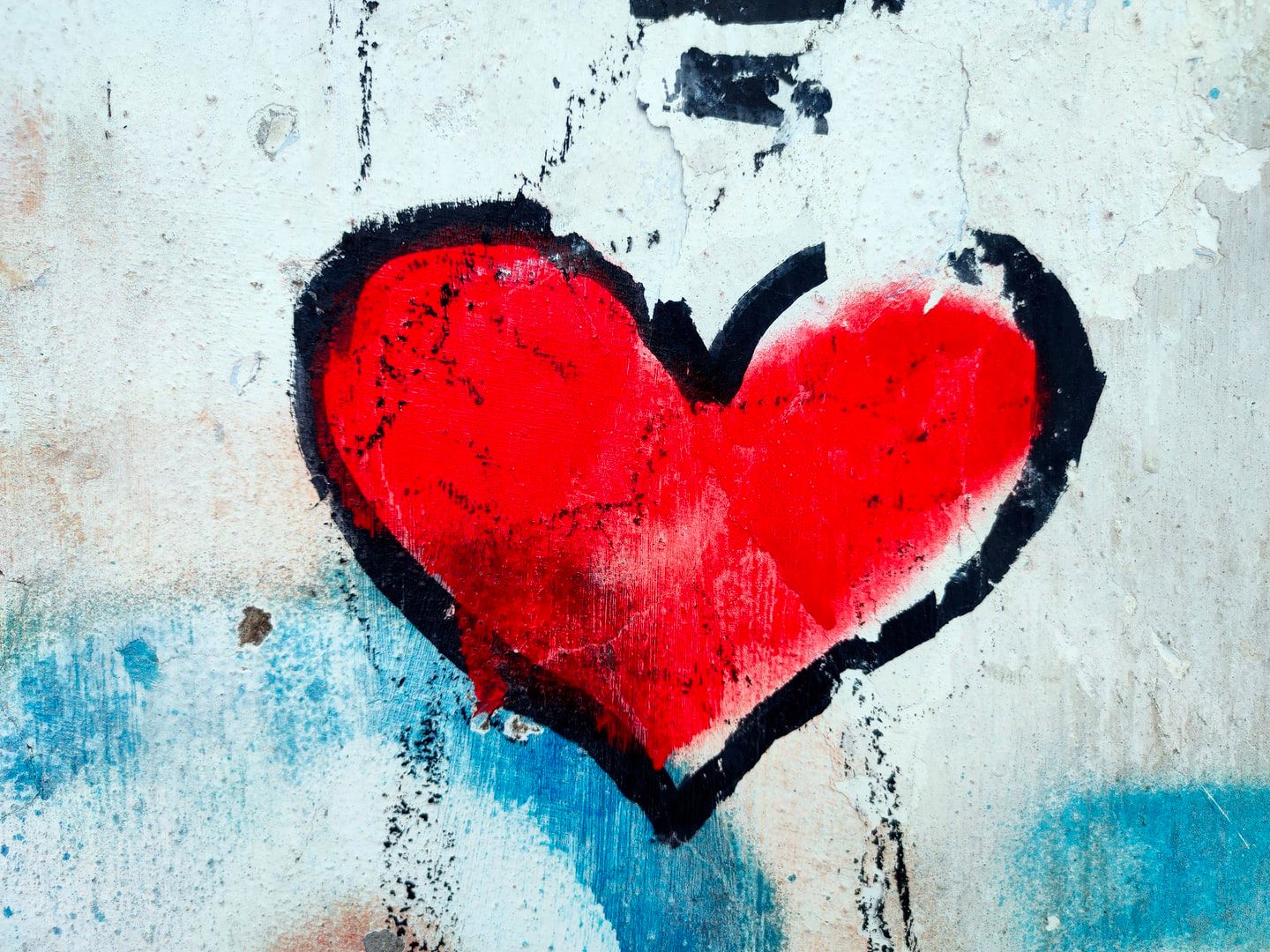
At the end of that year, my son’s life was not ruined. What did he learn? Playing Minecraft online gave him excellent keyboard skills and a strong sense of digital citizenship. Witnessing end-of-life care gave him the opportunity to learn about resilience and compassion. Being there when my mother died helped him learn how to process loss. Learning that it was okay to listen to his needs helped him articulate his feelings. We both grew, and we never returned to formal lessons.
Right now, our priority is learning how to live through extraordinary times. To do so, we need to be flexible, not rigid. Maybe, instead of worrying about algebra, we need to learn how to slow down and give time to our needs. Instead of testing, maybe we need to reflect on our collective grief and fear as we live through it. In place of Zoom classes, maybe we can develop skills in sustaining joyful human connections in a rapidly changing digital world?
This is a time for simple acts of radical gentleness. In the end, it is about loving ourselves, and each other, enough to get through this in one piece, even if that means playing hooky once in a while. The world won’t end if you do. It will be okay.
I watch my son staring out of his window as he watches a group of children play outside. I wonder if, at this moment, he feels the same loneliness I did, as a child? Those long, hot summers of sitting outside of the group, wondering how to make the first move, how to be the one chosen to join in. I remember awkward attempts, bolstering fear with abruptness, trying to get the joke, failing, laughing too loudly, speaking too quietly. When he was small, he asked me how he could make friends. I told him what I wished I had known back then — just start by saying hello and telling them your name. He took me at my word. For the next two years, he would take himself up to anyone he saw and begin this way. It worked, for the most part, his approach disarming others with its open-hearted delight. Sometimes, he met with scorn, those who ridiculed him and turned their backs. He would ask me why, sometimes he cried, but he never let it stop him from trying. He always forgave. He likes people.
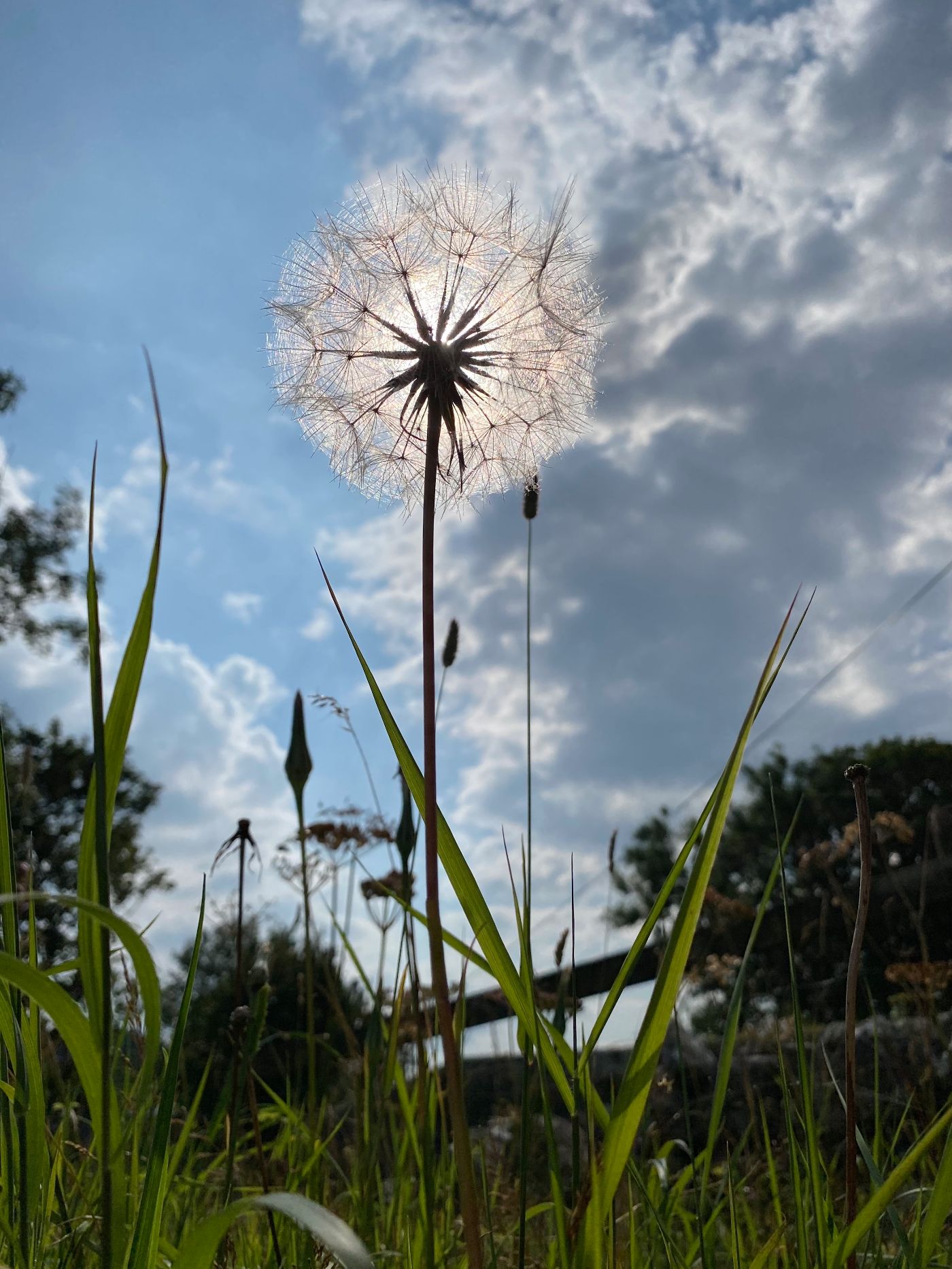
These days, he sits with the resigned nonchalance of an almost-teen. He watches the empty green. Sometimes, he flops his body around the back yard, lies down on the brittle grass to read, the hot earth warming his bare skin. I offer a game, to do something. He tells me ‘no, it’s okay’. I feel an emptiness creep in. Somehow, he grew up without me noticing. I wonder that it took a child for me not to feel alone, then chide myself at the irony of this. This mother-love is the only one where, if you do it right and love them well, they leave you without a second glance. I feel guilty that there is part of me that is grateful for this strange hiatus, where his going out into the world is stopped momentarily and we can have him here at home, safe from all that is out there. It doesn’t outweigh the worry though, and the guilt at giving him this lonely world.
It was easier when everyone was hidden. I ask him how he is feeling, if it bothers him that he still can’t go out. “It’s okay” he says again, “I understand why” but I can see behind his eyes that he is lonely. His body is the barrier, not the glass or mortar of the house. He must stay inside. My body is a barrier too, pre-determining the odds against my favour. The television and the papers tell us that only the sick and the old die, that we will be a burden to the NHS. Only those with pre-existing conditions…
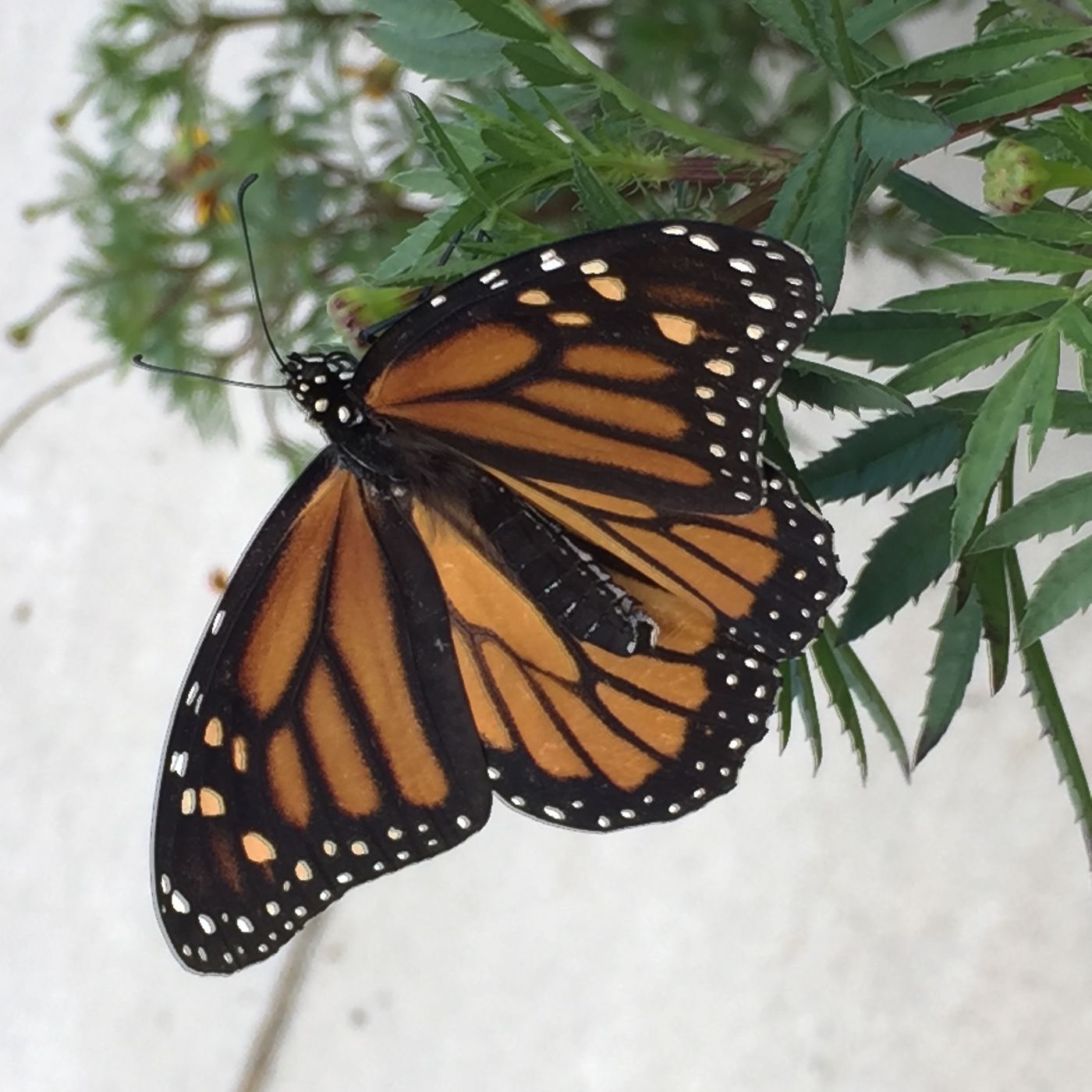
We live inside our cocoon, preferring to imagine butterflies than prisons. We get prized priority slots online and told to say in. We wash everything that passes the door. We do not see family, we do not see friends. We don’t know when it will be safer to be outside again. His body marks him as different. Mine does too. For me, the quiet release from feeling pressured to be able, to be part of the rushing world, has been a relief. I was always more lonely outside, trying to fit in. For him, it reminds him of what makes him different, makes obvious what he lives with every day — that his life is limited by the disease inside. He doesn’t want that. He wants to ignore it. He wants to be outside, with the group, forgetting all this, feeling invincible, feeling like the world is opening up to him, that he can do and be anything. Instead, he is penned in just as much as I was with my insurmountable shyness, both making us lonely, placed on the outside, trapped inside.
It is the patience of sorrow that carries me.
Now, it says, only now.
There is so much sadness that calls for sleep
and yet, the sun keeps rising,
insists it is not time for rest,
but time to grow
even if the growing is slow.
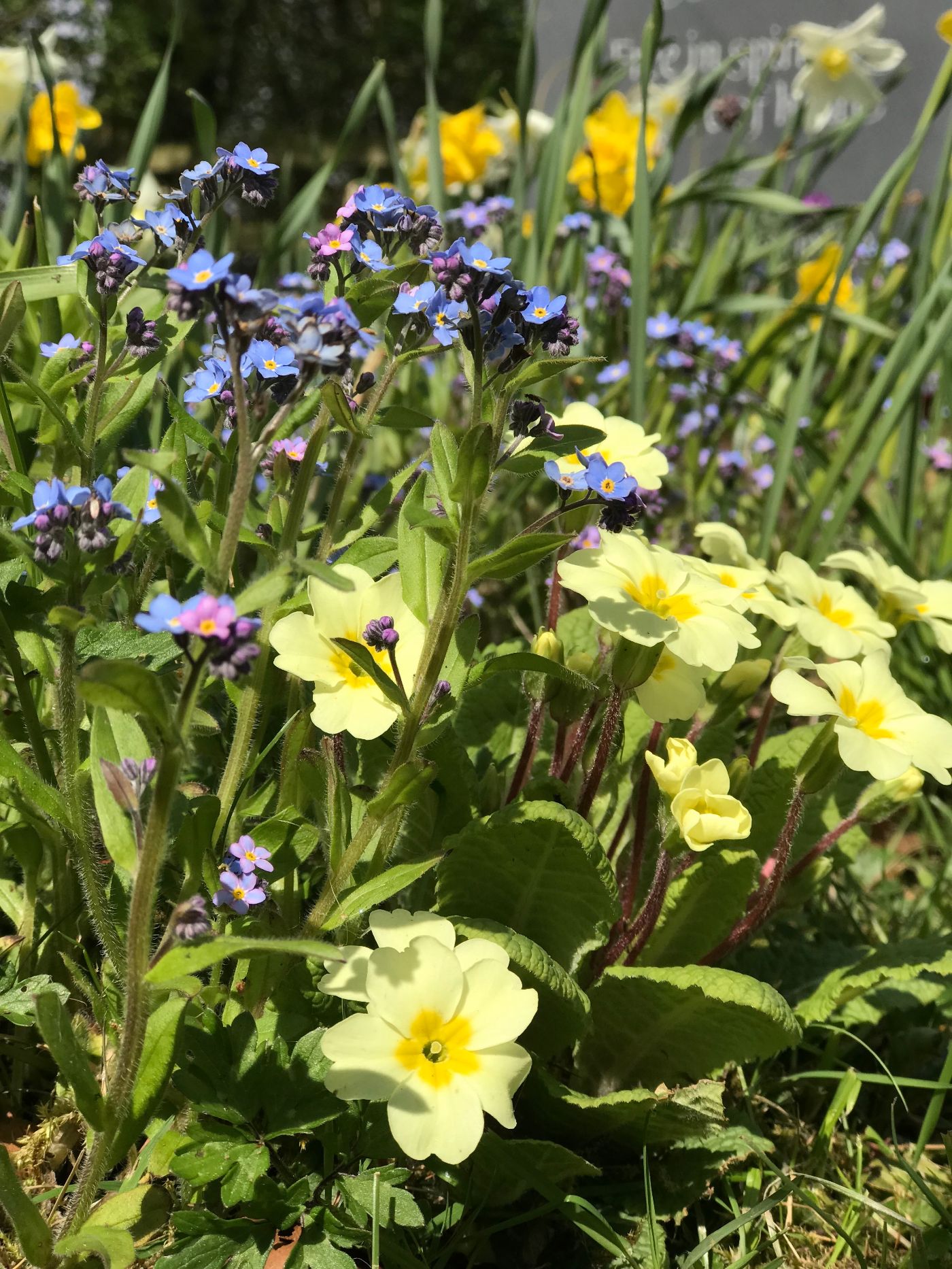
In the first reactive wave to the rising pandemic, I floundered, faced with the overnight loss of future plans and the stark reality of risk to both my son and I, as medically vulnerable people. My first response was to fill the uncertainty with action, reaching out to set up community platforms, projects, online connections. Within days, the internet was exploding with online webinars, support groups, workshops, concerts, film screenings, poetry readings, positive affirmations and pet memes. Faced with a sense of powerlessness, I did what I have always done: I tried very hard to push the noise of fear from my head and heart by filling both with the noise of creative action. In the end though, it just created more noise until all I could hear was the jumble of my own cascading mind as it grappled with the impossible possible that our life was unfolding into. As the world goes into lockdown, I read post after post on social media from people trying to make sense of what we cannot comprehend. It takes a while to realise why this feels very familiar, and why I am turning to strategies I have used before. This reaching to make sense, to create narratives from absence, from what is not there, this is what is at the heart of loss.
When my sister drowned in October 2007, everything about my life changed. I was seven and a half months pregnant, enjoying the final trimester of a much wanted pregnancy and planning for a future that my husband and I had hardly dared dream about. In that moment, the ability to believe in wishful thinking, the ability to make sense of a future, disappeared. My sister’s sudden death tore the illusion of my life away and with it, everything that I had previously identified myself with. It was the beginning of a decade of loss, with repeated and unexpected deaths and life-changing illness tearing down every edifice of the life I had previously imagined was mine. I exhausted myself to make sense of what no longer made any sense. Eventually, I realised that the only thing I could do was stop and watch to see what grew from the rubble this loss. I took most of my belongings and either gave them away or burned them on a large fire in the back garden of my old house. I threw onto the fire all my previous writing — around six million words — and with my four year old son, I watched everything that had defined me turn into ash and cinder. Then, I walked away.
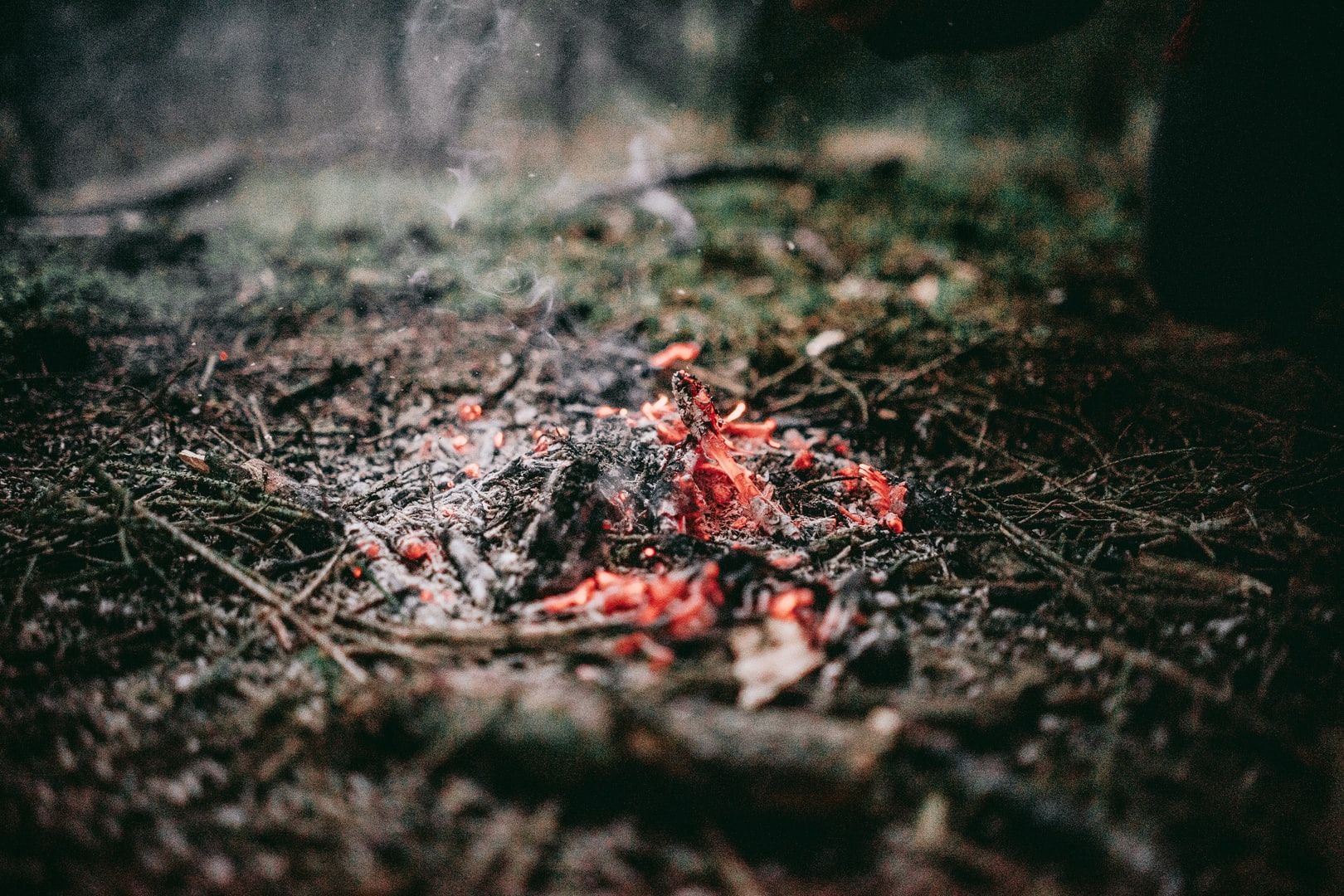
After years of perceiving my future as a set thing, and then years of trying to rebuild that same future out of the mess that grief had left behind, I finally let go. We moved to a faceless new house on a social housing estate that had been built on the remnants of an old industrial site. In this blank house, with its blank scrub garden, I quietly began again, digging out the rocks, mangled metal and broken concrete, and growing new soil from waste in the dark. Stone by stone, rock by rock, my son and I planted a garden from the waste and in doing so, I learnt to become still, and find myself and my story again.
This story became All My Wild Mothers, long-listed for the Nan Shepherd Prize 2019. This took me by surprise. This wasn’t a story about far-off places and vast, open spaces. I hadn’t gone anywhere or achieved anything. I had just planted a garden in my back yard. For me, it was about trying to make sense of a world that made no sense to me anymore. It was about loss and motherhood and planting a garden and finding in the waste and weeds the beauty in what is broken. In the end, to my surprise, it was a story about coming home to the woman I had become.
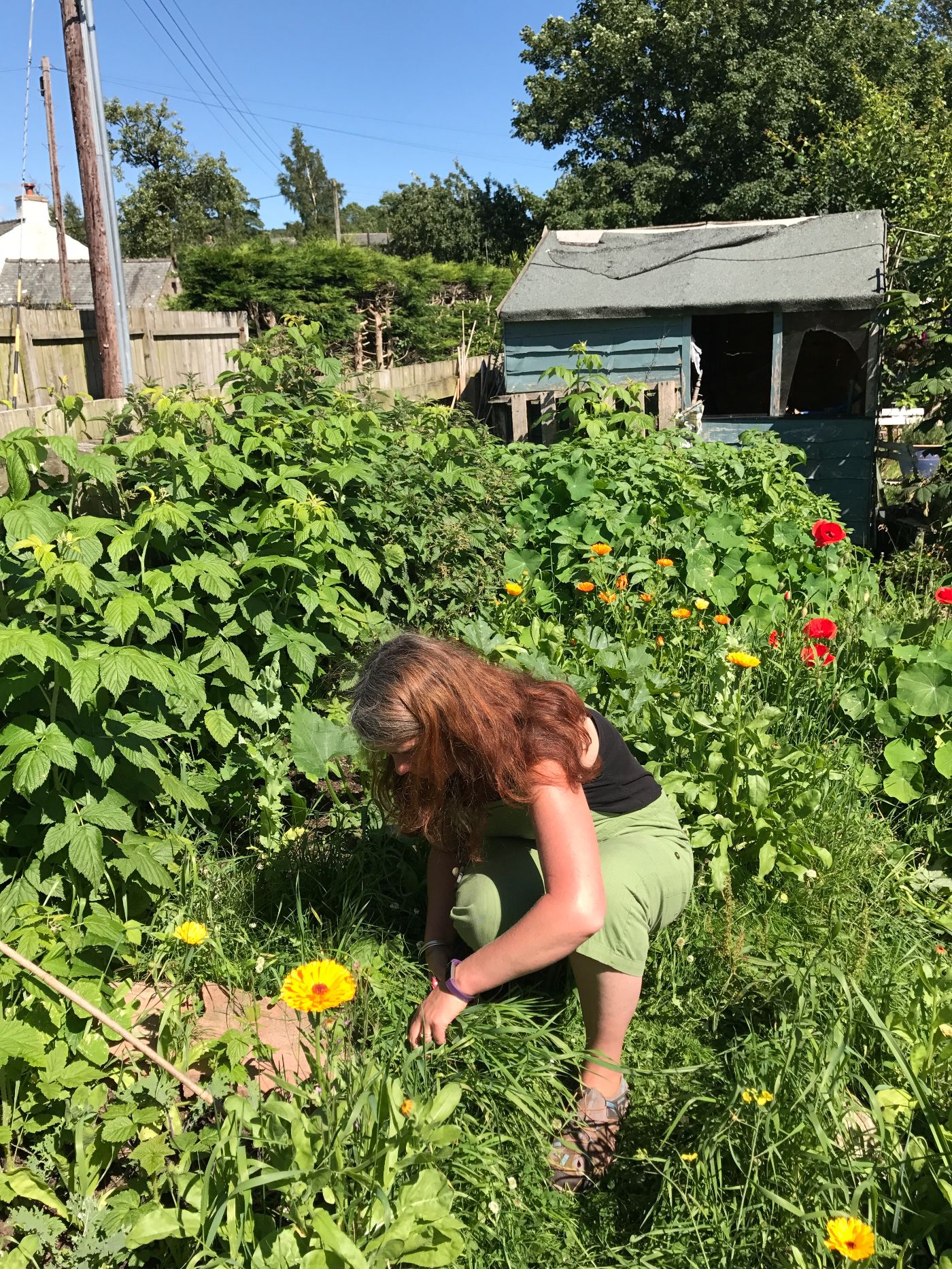
Shortly after I had finished the book and sent it off into the world, the world changed for everyone. Fast-forward and I am writing this at my table, staring out over a green that is usually full of children playing and neighbours chatting. Now, it is empty. A small military plane buzzes over a clear blue sky, the muted sound of its propellers breaking the birdsong. The world is upside down. If I switch on the internet, it streams endless statistics and yoga classes and positive affirmations about healing the planet, all trying to make sense of what is happening. The internet runs out of toilet paper, hand-sanitiser, vegetable seeds and laying hens. People are, in varying degrees and expressions, scared. We are hovering at the edge of an unimaginable global loss — of freedoms, of loved ones, of cultural rituals, of community. The assumed identifiers of who we are, collectively and individually, are falling away with a rapidity that leaves us spinning. We are grieving — both for those we have lost and for our ourselves, for our imagined futures. We speak in terms of “when this is over; when things go back to normal; when we get over the other side” but the truth is, there is no back to normal. We don’t know. There is no time frame, no certainties, no assurances. We have lost our sense of fixed point and come face to face with our own mutability, and our own illusory truth. This is the landscape of loss and we are writing its story moment by moment, unsure of what is to come.
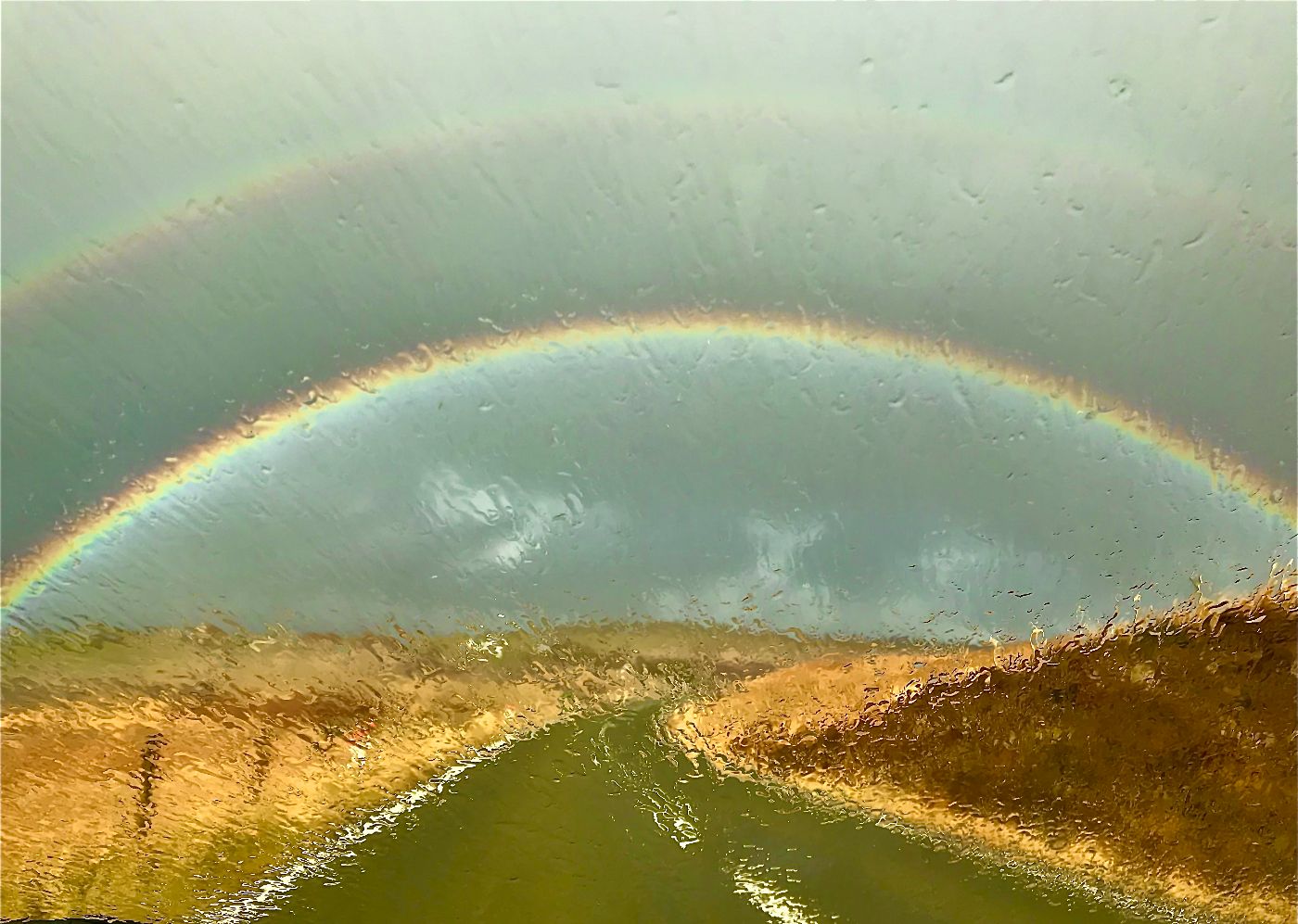
Overnight, everything I have been working towards has gone. There is no future tense, no way of making plans. I spin a while and then settle. I have been here before. I know what I have to do.
I start to dig. Under the moss and buttercups, I discover rocks that my son and I placed eight years ago. That time, I was digging to find myself again in amongst the slow, strange time of grief. Now, I am digging to keep myself still in a time of a rapidly changing world of collective loss. It isn’t as easy these days. My body has broken over the last few years, become brittle and unstable with the impact of chronic illness. Now, I can manage to do a few minutes at a time, pausing to lie flat and rearrange my bones. After an hour, I have to make myself stop or the small reserve of energy that I have will literally run out.
My son has changed too. He is no longer the little boy that followed me with his green wheelbarrow and roman shield. He is nearing his teens, his body and mind changing daily. Yet, as he reaches out to place a hand on my back, quietly asking if I am alright, I see so clearly the same big heart and am thankful for all the days we have had in between. I have been frightened of death taking him for so long now. As that risk rises exponentially every day and we shield ourselves into the small world of our home, I find myself trying to explain to people what it means to live with that threat on a daily basis. I am fighting for his life with a mop and Dettol bucket, sealing off our lives to protect what is at the heart of it: my child.
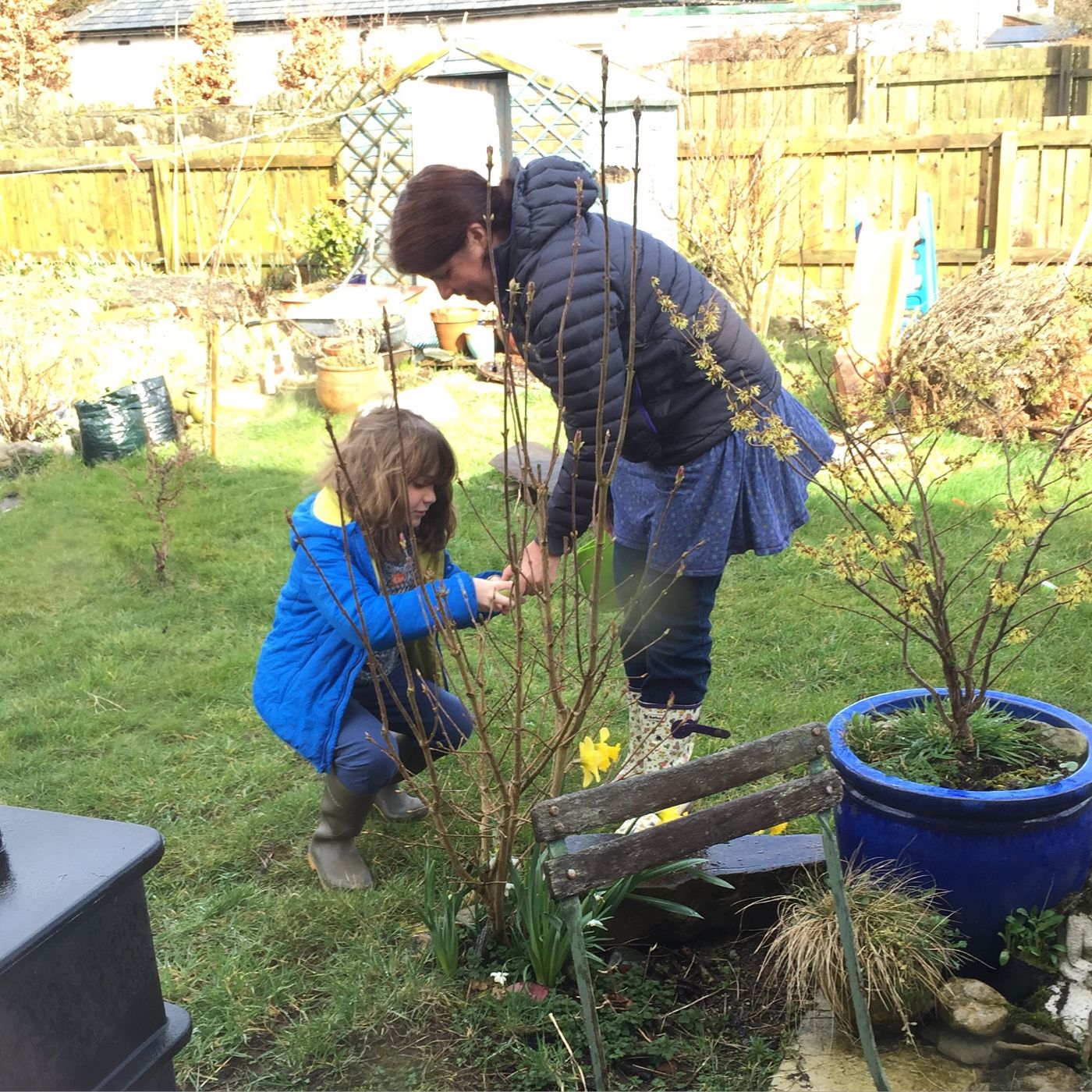
I keep digging, turning over soil that we made with our own hands, using rotted branches, half-composted kitchen waste and horse manure to create earth in a land of rubble. As I dig down, I excavate layers of our lives: sand, bricks, bulbs, dinosaurs. The feverfew that now springs up at will was dug from my mother’s garden before we knew she was dying. The nettles that thread long yellow roots through the soil were the first crop to be planted here by my four year old son, who declared that a garden should always have nettles for soup. Each forkful of soil is a story of becoming whole after everything was smashed apart.
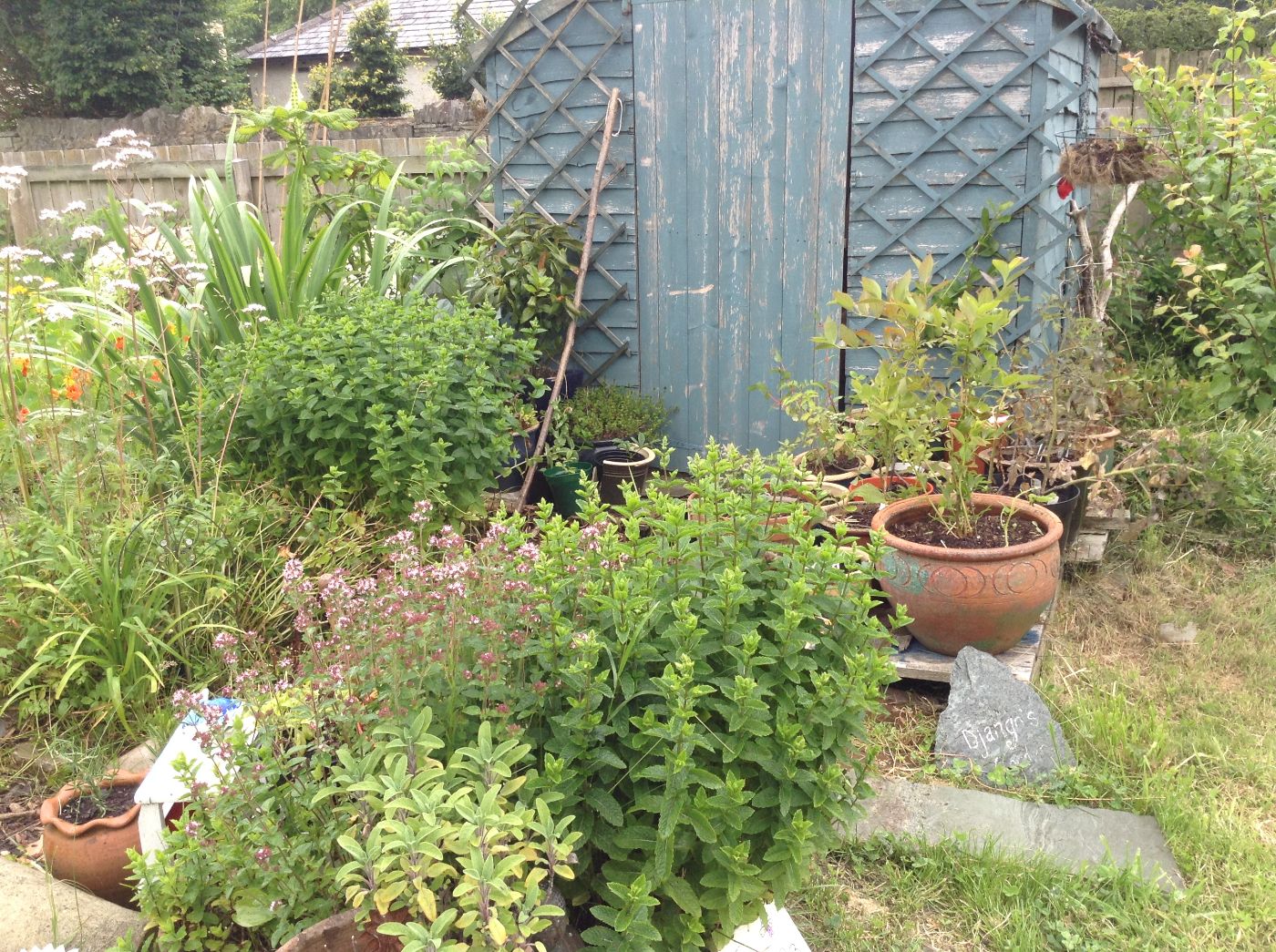
We came to this house because death had broken everything I had once known and left me with a life I did not recognise. This garden, that now grows wild with weeds and fruits, and flowers that can heal a wound and ward off a wayward spirit, was created out of loss. Now, as life unravels, this garden gives me space to re-find myself again and ready myself for the changes that are to come. And they will come. There will be death and loss and parting. I know I cannot stop it, though I can try to make it pause but I recognise the breath of it as it waits close by. As the world juxtaposes a strange silence and transposes its usual noise into an invisible cacophony of connection, I plant the first seeds, watch the early bees rise from sleep, let the soft tick of a clock drift like a dandelion out across the breeze.
There will be more dying, of that I am sure. For now, I am becoming small, mouse-like, slipping quietly between the hours, my days slowed down to an almost stillness, returning once more to the darkness of soil. As the world reaches out to make sense of this new absence, I come back to the quiet act of planting the garden, reminding myself, once again, that when things fall apart, it is wise to return to the small things that grow.
Follow me, follow...